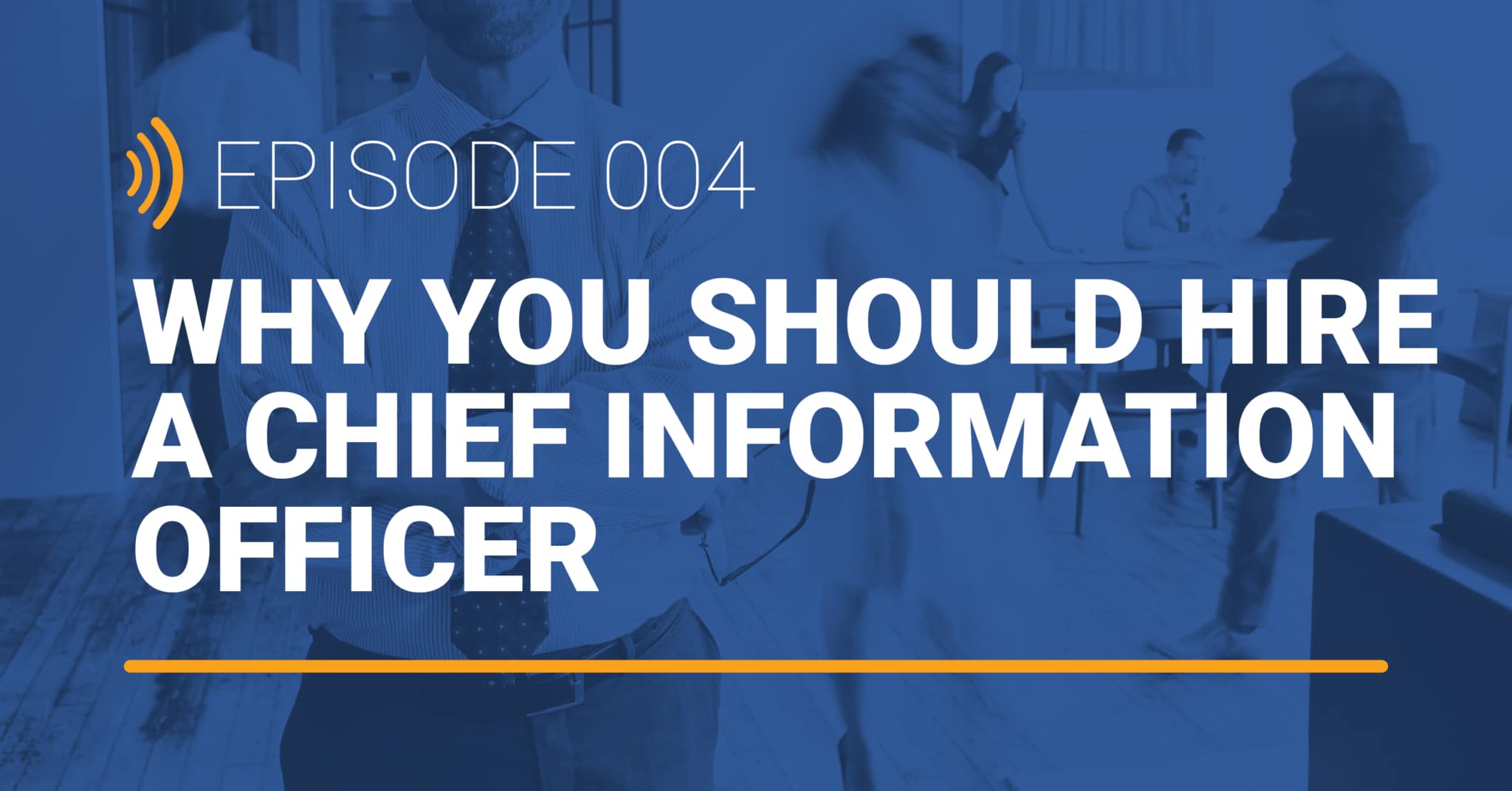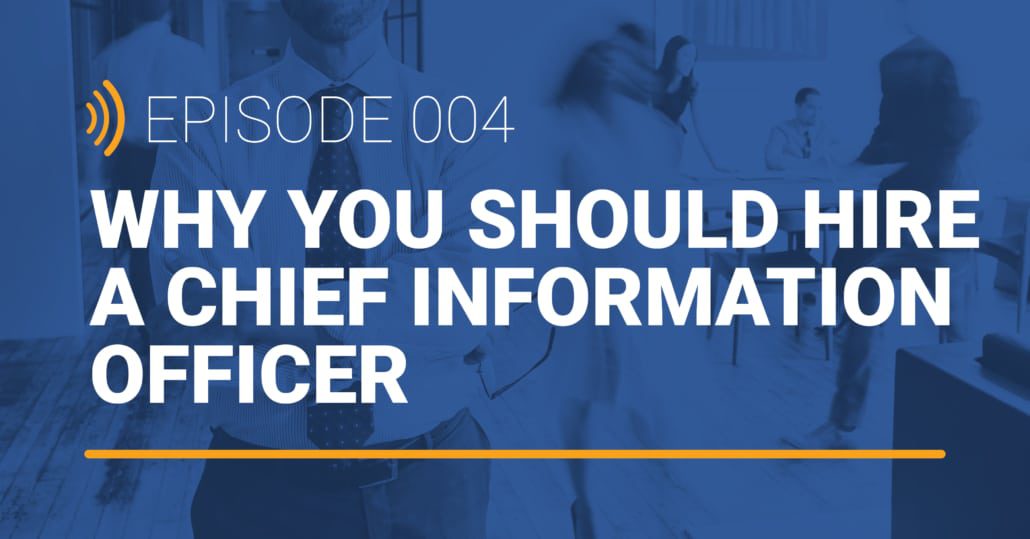What is a CIO? Why are they valuable?
On the fourth episode of TechTalk Detroit Chuck Lobert & Brian Spurgeon discuss the importance of Chief Information Officers – what do they do, why are they necessary, and how can businesses fill that role?
With each step your business takes to becoming a more developed and profitable operation, you need to be sure that your IT systems can support its growth. Given how important technology is today, you need to integrate your business planning with IT planning – they really should be one and the same.
Arranging one-off consultations with IT companies is inconvenient and expensive, but without the right knowledge, your technology may fail to meet the requirements of the next stage of your company
That’s why you need a Chief Information Officer (CIO), which is precisely what Vision Computers Solutions’ Chuck Lobert & Brian Spurgeon discussed on the fourth episode of TechTalk Detroit:
What Is A CIO?
A Chief Information Officer (CIO) provides an invaluable service for your business. It’s their job to understand your organization completely and offer strategic IT planning, analysis, and overall IT management aligned with your business goals.
They’re dedicated to finding ways to grow your business through new technology and technology-driven processes. By keeping an eye on both your business and the tech industry landscape, your CIO can make sure that you are getting the maximum benefit from all of your technology investments.
“One of the biggest benefits of having somebody in that role is, ultimately, they’re going to provide you the strategy you need to grow your business,” says Chuck. “That’s the person in your company that you should be leaning on to make sure that a) your infrastructure can grow with your demands, and b) that you’re not just throwing away money year to year on your technology”.
What Does A CIO Do?
A CIO that oversees your business strategy, and how it integrates with IT planning and investments, will manage a number of high priority concerns:
- Business Continuity: The key to effective disaster recovery and business continuity is how well your business plans ahead. With a reliable and experienced CIO, you can ensure your business is prepared for the future and any emergencies that may entail.
- Consultation On Cloud Tech and Other Emerging Trends: New applications of information technology are hitting the market every year, and without the right perspective, your business could miss out. A CIO can help you keep up with the latest and greatest in IT, including cloud computing, an exciting new factor in the business world today.
- Optimal IT: Tomorrow quickly becomes today; when you plan effectively for your future, you’re making sure that you’re always prepared in the present as well. Not long after a CIO joins your operation, you’ll soon see the benefits of proper planning take effect in your business’ daily operation.
“A CIO should be looking at things not from an IT management standpoint, but from that high-level viewpoint,” says Brian. “Looking at stuff like the budget, looking at stuff like the five-year outlook.”
Why Doesn’t Every Business Have A CIO?
“A lot of small businesses don’t take that strategic look,” says Brian. “They don’t view things from standpoint of what’s going to be best for the business; looking one year, thee years, five years, down the road.”
Finding an experienced CIO that is willing to carry out executive-level duties on a small business salary is a near-impossible task. Many businesses can’t even afford to even try to hire someone to fill this position – but just because the resources aren’t there, it doesn’t mean that the need for CIO services isn’t there either.
It can be expensive to hire someone just to take care of their IT and strategy. Payscale estimates the current average salary for a CIO in the US is $157,557. Can you afford that?
More often than not, strategy is left to the leadership in general. It’s everyone’s responsibility to talk about it at meetings, but no one’s specific job. How can you reconcile these two issues? The need for a CIO, and the difficulty that comes with hiring and employing one?
Some businesses choose to outsource their CIO role to an IT company like Vision Computer Solutions. A “virtual” Chief Information Officer (vCIO) is an experienced IT professional who has an in-depth understanding of business strategy and technology. Could your business benefit from strategic IT planning that aligns your technology strategy and spending with your overall business goals?
As the vCIO, we will advise you on everything from IT security to operations. Our job is to keep your technology running efficiently, and with an eye to the future. As your vCIO, we will also help you cut IT operating costs, confirm that your technology is running securely and that it enables your people to work efficiently each day.
Like this article? Check out the following blogs to learn more:
TechTalk Detroit: Working From Home
On-Demand Webinar: Can Your Business Survive a 2-Week Quarantine?
Do You Know How To Support Your Employees’ Productivity While They Work From Home?



